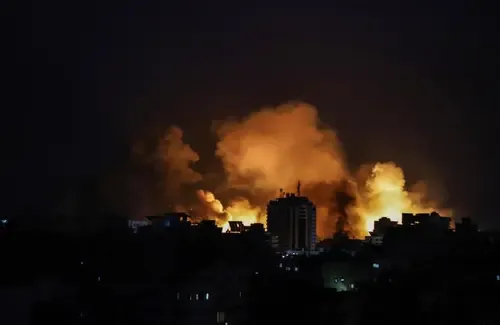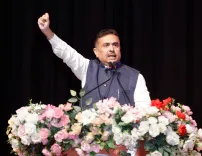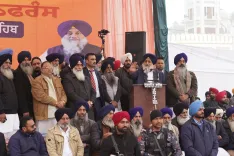Did Israel Target Hezbollah's Weapons Production Facilities in Lebanon?

Synopsis
Key Takeaways
- Israeli warplanes targeted Hezbollah's weapon production sites.
- 18 airstrikes were conducted in a short period.
- Hezbollah's underground facilities were among the targets.
- The airstrikes challenge the ceasefire agreement.
- Israel's policy against Hezbollah remains stringent.
Beirut, Aug 1 (NationPress) Israeli warplanes conducted a series of intense airstrikes across various regions in eastern and southern Lebanon, specifically aiming at positions linked to the Lebanese group Hezbollah, as reported by local media and military sources.
The Lebanon National News Agency indicated that these airstrikes focused on the eastern mountain range in the Bekaa region and extensive areas in the southern part of the country.
A military intelligence source disclosed to Xinhua that Israeli aircraft executed 18 strikes within a brief span of half an hour, targeting previously affected Hezbollah positions.
In a statement, the Israel Defense Forces (IDF) announced that their Air Force targeted key sites for weapon production and storage, located in the Bekaa Valley and southern Lebanon.
Among the facilities hit were explosive manufacturing sites crucial for developing Hezbollah's arsenal, including an underground facility for the production and storage of strategic armaments, the IDF noted.
The IDF claimed that Hezbollah is attempting to restore these sites and capabilities, which breaches the agreements established between Israel and Lebanon, as reported by Xinhua.
Israeli Defense Minister Israel Katz further stated that one of the airstrike targets was Hezbollah's largest precision missile production facility in Lebanon.
He emphasized that Israel's policy of stringent enforcement against Hezbollah would persist, and the Lebanese government holds the responsibility to avert violations of the ceasefire.
The ceasefire agreement, facilitated by the United States and France, has been in effect since November 27, 2024, following over a year of confrontations related to the conflict in the Gaza Strip.
Nonetheless, Israel maintains five positions in the south and occasionally conducts airstrikes in both southern and eastern regions, claiming these actions are necessary to neutralize threats from Hezbollah.










